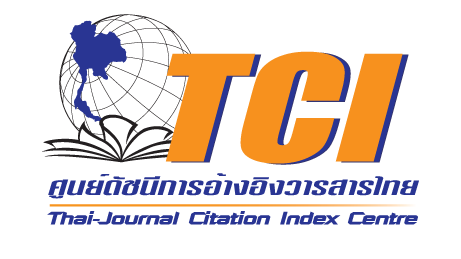A STUDY OF FLOW STATE, SELF CONFIDENCE AND STATE ANXIETY ON PROFESSIONAL PLAYERS IN VOLLEYBALL THAILAND LEAGUE
Keywords:
Flow State, Self Confidence, State Anxiety, Volleyball Professional PlayersAbstract
The purpose of this study was to investigate the association between flow state, self-confidence and state anxiety in professional Thai volleyball players. Sixteen female volleyball players (age: 21.4 ± 4.7 yr; range:16 to 34 yr) currently competing in the 3BB Nakhonnon team were recruited to take part in this study. The recruited players experience varied and ranged from 1 to 4 yrs (18.75%), 5 to 8 yrs (56.25%), and >8 yrs (25%).Flow state and competitive state anxiety were assessed using a flow state scale and a competitive state anxiety inventory, respectively. . A questionnaire was administered during the volleyball season, which ran from November 2017 to March 2018, and consisted of 14 matches. Descriptive and correlational statistics were used to analyze the data (means, percentages, standard deviations, Spearman rank correlation coefficients, and ttests),with the α significance level set at .05. Descriptive analysis showed that flow state scores were highest in Match 14 (4.23 ± 0.39 , Win), with flow rate scores the lowest in Match 11 (3.41 ± 0.67, Lose). Self-confidence scores were highest in Match 14 (3.54 ± 0.48, Win), with Match 6 having the lowest score (2.85 ± 0.53, Lose).State anxiety scores were highest in Match 8 (2.17± 0.42, Lose), with the lowest score found in Match 14 (1.47± 0,39, Win).There was a moderate positive relationship between flow state and self-confidence (rs = 0.41,p<0.05). Flow state had a weak negative relationship with state anxiety (rs = -0.18, p<0.05), and self-confidence had a weak negative relationship with state anxiety (rs = -0.35, p<0.05).Flow state (p=0.01), Self-confidence (p=0.00) and State anxiety (p=0.04) between winning matches and losing matches have significant difference at .05 level
In conclusion, flow state, self-confidence and anxiety in female volleyball players were related to performance outcomes during competition. Therefore, coaches and players should be aware of these associations and strive to build flow state and self-confidence and control levels of anxiety.
(Journal of Sports Science and Technology 2019; 19(2): 32-45)
(Received: 21 May 2019, Revised: 22 May 2019, Accepted: 25 May 2019)
Keywords: Flow State/ Self Confidence/ State Anxiety/ Volleyball Professional Players
*Corresponding Author: Wimonmas PRACHAKUL
Department of Sport Science and Health, Faculty of Sport Science
Kasetsart University, Kamphaengsaen Campus, Nakonprathom, THAILAND 73140
E-mail: wimonmas.p@ku.th
References
2. Muangnapho P. Sport psychology for weightlifting. J Faculty of Physical Education Srinakharinwirot University 2012;15 (Special ed.:(414-7.
3. Csikszentmihalyi M. Beyond boredom and anxiety. San Francisco: Jossey-Bass Publishers; 1975.
4. Csikszentmihalyi M. Flow: The classic work on how to achieve happiness. 2nd ed. London: Rider Books; 2002.
5. Tonsaitanin J. The Flow State of Volleyball Player Participate in University Games [Master of science]. Bangkok: Kasetsart University; 2014.
6. Csikszentmihalyi M. Flow: The psychology of optimal experience. New York: NY; 1990.
7. Jackson SA, Roberts GC. Positive performance states of athletes: Toward a conceptual understanding of peak performance. Sport Psychol 1992;6:156-71.
8. Jackson SA, Csikszentmihalyi M. Flow in sports: The keys to optimal experience and performances. Champaign, IL: Human Kinetics; 1999.
9. Bakker A, Oerlemans W, Demerouti E, Bruins SB, Karamat AD. Flow and performance: A study among talented Dutch soccer player. Psychol Sport Exerc 2011;12(4):442–50.
10. Jackson SA, Kimiecik J. Optimal experience in sport and exercise. In: Horn T, editor. Advances in sport psychology. 3rd ed. Champaign, IL: Human Kinetics; 2008. p. 377-99.
11. Jackson SA. Factors influencing the occurrence of flow state in elite athletes. J Appl Sport Psychol 1995;7:138-66.
12. Jackson SA, Kimiecik JC, Ford SK, Marsh HW. Psychological correlates of flow in sport. J Sport Exerc Psychol 1998;20:358-78.
13. Chavez E. Flow in sport: A study of college athletes. Imagin Cogn Pers 2008;28:69-91.
14. Stavrou NA, Zervas Y. Confirmatory factor analysis of the Flow State Scale in sports. Int J Sport and Exerc Psychol 2004;2:161-81.
15. Koehn S. Effect of confidence and anxiety on flow state in competition. EJSS 2013;13(5):534-50.
16. Craft L, Magyar T, Becker B, Feltz D. The relationship between the Competitive State Anxiety Inventory-2 and sport performance: A meta-analysis. J Sport Exerc Psychol 2003;25:44-65.
17. Martens R, Vealey RS, Burton D. Competitive anxiety in sport. Champaign, IL: Human Kinetics;1990.
18. Stavrou NA, Zervas Y. Confirmatory factor analysis of the Flow State Scale in sports. Int J Sport Exerc Psychol 2004;2:161-81.
19. Besharat MA, Pourbohlood S. Moderating effects of self-confidence and sport self-efficacy on the relationship between competitive anxiety and sport performance. Psychol 2011;2:760-5.
20. Jones G, Hanton S. Pre-competitive feeling states and directional anxiety interpretations. J Sport Sci 2001;19:385-95.
21. Hanton S, Mellalieu SD, Hall R. Self-confidence and anxiety interpretation: A qualitative investigation. Psychol Sport Exerc 2004;5:477-95.
22. Jones G. More than just a game: Research developments and issues in competitive anxiety in sport. British J Psychol 1995;86:449-78.
23. Koehn S, Morris T. The relationship between flow state and performance in tennis competition. J Sports Med Phys Fitness 2012;52:437-47.
24. Aube C, Brunelle E, Rousseau V. Flow experience and team performance: The role of team goal commitment and information exchange. Motiv Emot 2013;38:120-30.
25. Robazza C, Bortoli L. Perceived impact of anger and anxiety on performance in rugby players.Psychol Sport Exerc 2007;8:875-90.
26. Jones G, Swain A, Hardy L. Intensity and direction dimensions of competitive state anxiety and relationships with performance. J Sports Sci 1993;11:525-32.
27. Mellalieu SD, Hanton S, Fletcher D. A competitive anxiety review: Recent Directions in sport psychology research. In: Hanton S, Mellalieu SD, editors. Literature reviews in sport psychology.New York: Nova Science; 2006. p. 1-45.
28. Woodman T, Hardy L. The relative impact of cognitive anxiety and self-confidence upon sport performance: a meta-analysis. J Sports Sci 2003;21: 443-57.






